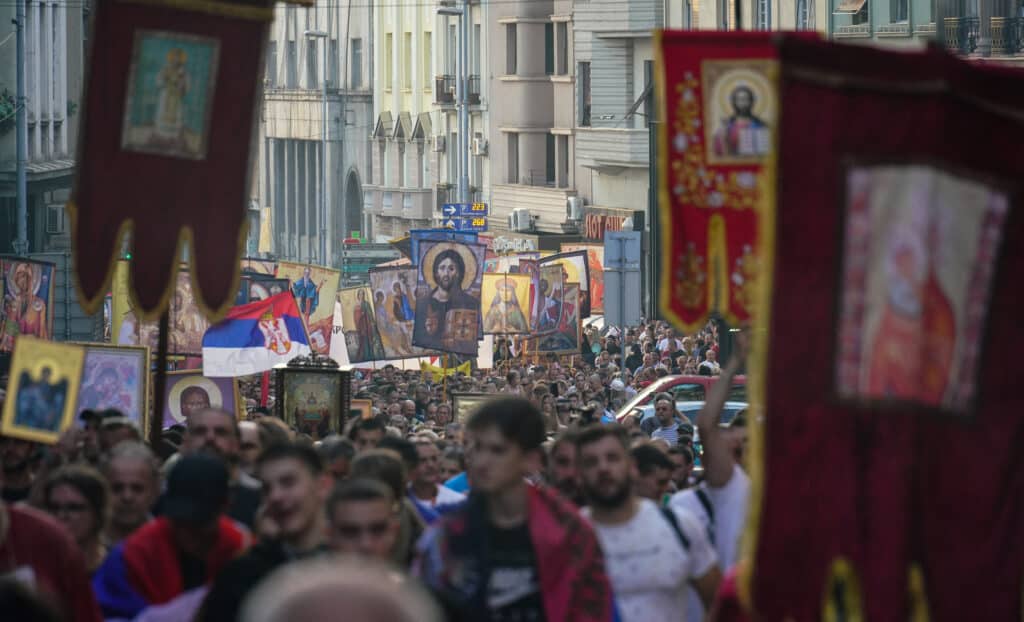
Anti-LGBTQ+ protestors took to the streets of the country’s capital on Sunday (28 August) to oppose plans for the city to host EuroPride on 17 September – the event is hosted in a different European country each year.
The march was led by clergy from the Serbian Orthodox Church but was also attended by several other groups sharing similar sentiments. Bishops in the march told Reuters the Pride event threatened their view of traditional family values.
Some held signs saying things like “save our children,” while others carried crosses and pictures of significant religious figures.
The day before the march, Serbian president Aleksandar Vučić had said the event would be postponed or cancelled, citing fears right-wing activists would attempt to dismantle the celebration.
“It will happen but in some other and happier time,” he said in a statement, while the Belgrade Pride director Marko Mihailovic said the government couldn’t cancel the event, only “try to ban it”.
European Pride Organisers Association (EPOA) president Kristine Garina responded to the news, saying the Serbian president could not “cancel someone else’s event”.
“EuroPride in Belgrade will not be cancelled and will bring together thousands of LGBTI+ people from across Europe with LGBTI+ people from Serbia and the wider western Balkans,” the Latvian activist said.
Garina also claimed that the ban would violate Serbia’s commitment to the European Convention of Human Rights, saying: “Aside from the illegality of such a ban, it must be noted that those opposing EuroPride in Belgrade are using tired old tropes, inaccuracies and downright lies to discredit what is, in fact, a celebration of human rights and equality.”
The country has been attempting to join the European Union since 2009, but negotiations are ongoing and have involved improving human rights. Its history of banning Pride parades in the past has received criticism from several European human rights organisations – this includes marches in the early 2000s that were embroiled in violence from anti-LGBTQ+ protesters.
But after some peaceful Serbian Pride parades, EuroPride had allowed Belgrade to be considered as a candidate to host the 2022 event.
In a letter to the EPOA, former prime minister Ana Brnabić wrote: “The government I lead is committed to ensuring the full respect of human rights and of all citizens and we hereby promise to help the Belgrade Pride organising team in ensuring a safe and successful organisation of EuroPride in Belgrade in 2022.”
